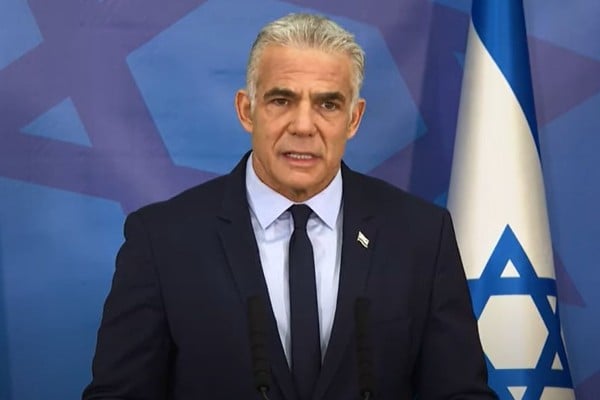State Dept. downplays impact of Israeli pressure on Iran nuclear deal, says stagnation due to Iran’s unwillingness to negotiate in good faith.
By World Israel News Staff
A U.S. diplomatic official shot down claims by members of Prime Minister Yair Lapid’s administration that Israeli pressure succeeded in derailing a return to a nuclear deal with Iran, which would see sanctions lifted against the Islamic Republic in exchange for an agreement to curb its nuclear program.
In recent weeks, Israeli officials, including Lapid, have insinuated that Israel forced European and U.S. diplomats to take a harder stance on Iran, which led to the deal falling apart.
But a senior American government official is saying that version of events are far from accurate.
“We have been and are continuing to seek a mutual return to full implementation of the JCPOA [Joint Comprehensive Plan of Action] because President Biden is convinced that this is the best way to deliver on his commitment not to allow Iran to possess a nuclear weapon,” an unnamed State Department official told the Times of Israel in a statement.
“We have a very close dialogue with Israel and other allies and partners about Iran, including the JCPOA. Special Envoy Malley is an integral part of those talks,” the official added.
A senior Israeli official recently credited Lapid’s phone call with Biden last month and various Israeli leaders’ visits to the U.S. as a reason for the Biden administration’s allegedly tougher stance on Iran.
But according to the American statement, “it is not correct that our position has ‘toughened.’ The President has always been very clear about what we need in order to reach an understanding and return to full implementation.
“There is only one reason that we have not yet reached an understanding: Tehran has not yet accepted the reasonable basis presented by the EU as coordinator of JCPOA talks,” the statement concluded.
Ahead of Israel’s national elections in November, former prime minister Benjamin Netanyahu has said that Lapid has been weak on Iran and that a new nuclear agreement, which would see Tehran continue its nuclear development program, could be signed during his tenure.
Lapid swiped back that the original deal was signed in 2015 during Netanyahu’s time in office.



